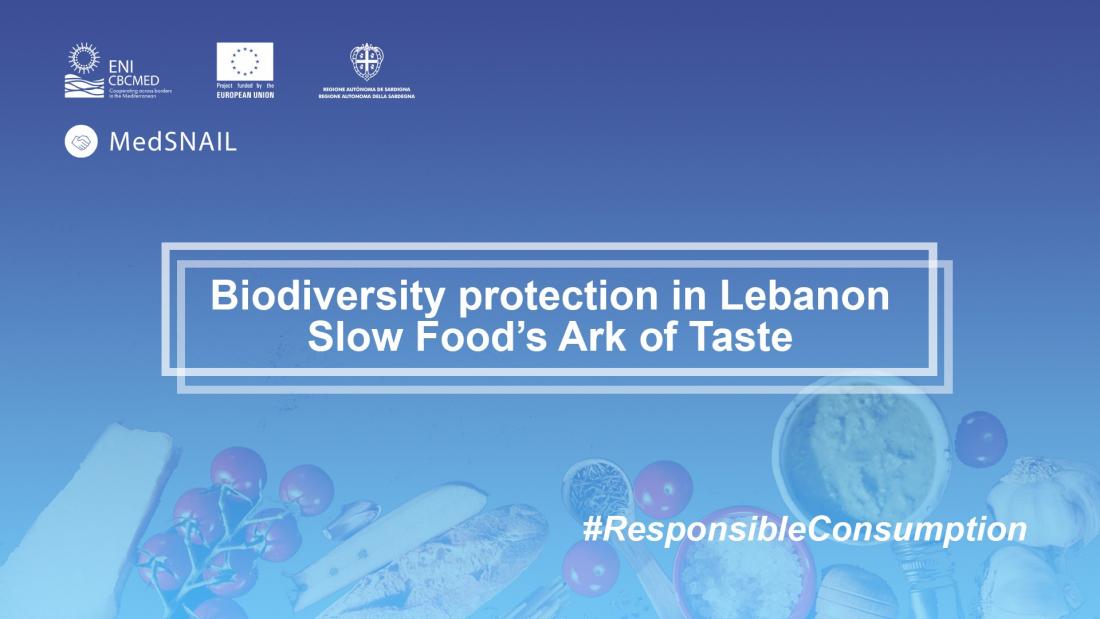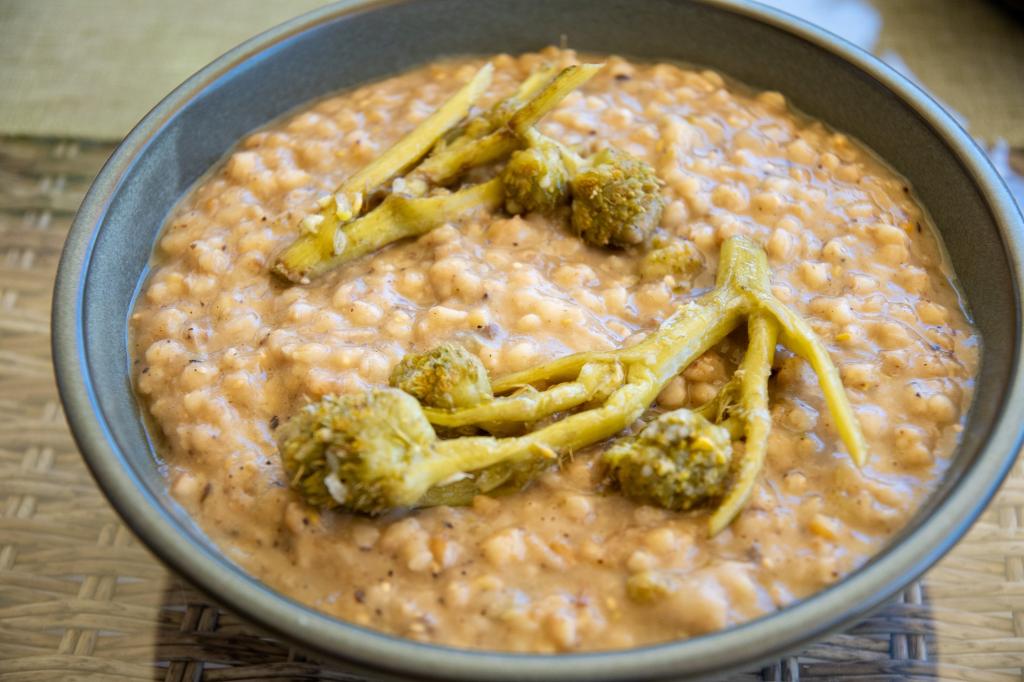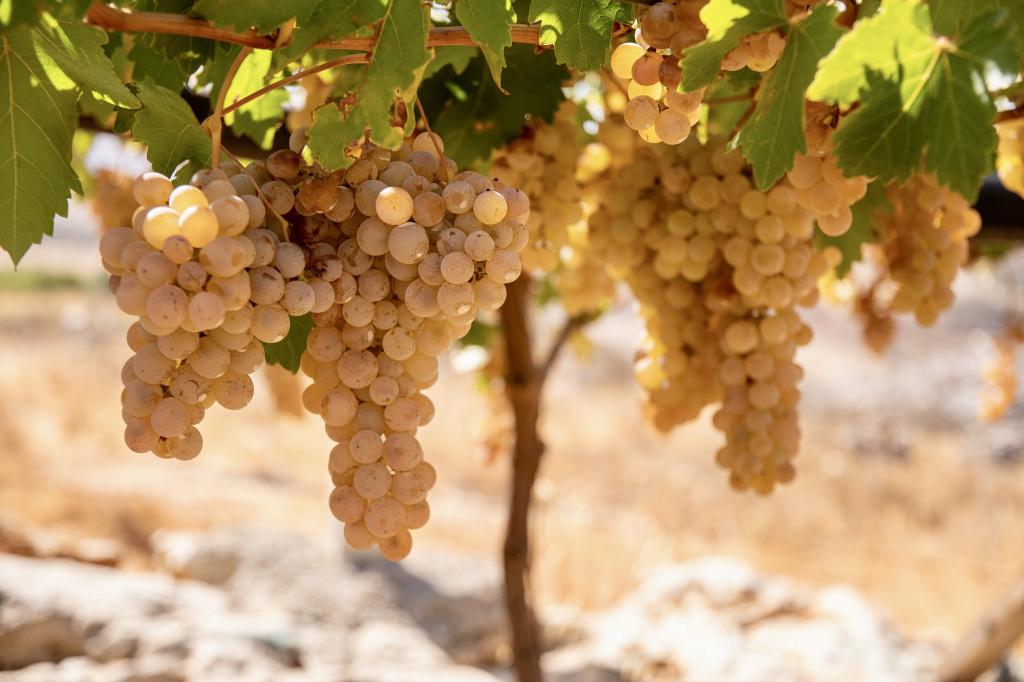MedSNAIL in Lebanon protects the biodiversity of some food products through the Slow Food’s Ark of Taste program

Thanks to the MedSNAIL project, two new products in Lebanon are boarding the Ark of Taste, Slow Food's project dedicated to safeguarding endangered food products.
This is an important achievement, taking into account the context in which this focus on food biodiversity fits. The country is caught in multiple crises: economic-financial, political, social, humanitarian and infrastructural. These crises are connected and difficult to solve for reasons both internal and external to the country. Therefore, talking about safeguarding food biodiversity might almost seem out of place, although it is precisely in these contexts that traditions and biodiversity are most at risk.
Agricultural biodiversity and small-scale, family-based food production systems are in danger not only due to industrialization, genetic erosion, changing consumption patterns, climate change, as in most parts of the world, but also for the abandonment of rural areas, migration, and conflict. Not the least of which is a deep food crisis that has brought the country to its knees.
So, the Ark of Taste invites everybody to take action: in some cases, products need to be rediscovered and put back on the table, and producers need to be supported and to have their stories told; in others, such as the case of endangered wild species, it might be better to eat less or none of them in order to preserve them and favor their reproduction.
In the country, the Ark of Taste had already registered numerous products https://www.fondazioneslowfood.com/en/nazioni-arca/lebanon-en/, but today, thanks to MedSNAIL project, Akkoub and Oubeidy are added.
Aakoub (or akkoub Gundelia tournefortii) is a spiny, thistle-like plant found in semi-desert areas in Palestine and Lebanon. In Lebanon, it is commonly collected in the southern part of Mount Lebanon: the mountains of Shouf and Dahr el-Baydar where it is used to prepare stews, omelets, salads, kebbeh and even pickles. Akkoub is a wild plant that is difficult to forage due to its mountainous growing location and many spiny leaves. It has a taste similar to artichoke. In Arabic and Palestinian culture in particular, its used for food and healing purposes, and these cultures respect and identify with the plant. The cleaning and preparation of akkoub is a whole ritual in Nablus. Nablulsi women would gather and spend hours shaving the vegetable until their fingertips would turn black. They store the plant in large quantities to use throughout the year or to send as gifts to family members living abroad. While entire families once traditionally harvested akkoub, it is now at risk of being lost due to the difficulty and time involved in its harvest, cleaning and cooking.

Otherwise, the Oubeidy (also called Obaideh) is an indigenous white berry variety grown in Lebanon, particularly in the Bekaa Valley. It has a high sugar content and low acidity. The resulting wine has a dense texture and flavors of honey and lemon.
The grape is very delicate and has a thin skin. It oxidizes quickly if the sun is too hot. So vegetation management is essential.

Historically, Obeidi has never been considered suitable for winemaking, being preferred instead as a table grape-along with the Tfeifihi, Beitamouni, and Maghdouchi varieties-and for the production of Arak, the Lebanese grape spirit. Lebanese wineries have always planted European or American varieties. More recently, some wineries have started its winemaking.
Traditional biodiversity hides so many stories as well as profound richness. It is crucial to save it, but there is still a long way to go. So, we have set ourselves an ambitious goal: to board thousands of products on the Ark, tracking them down in every corner of the planet.
The Slow Food’s Ark of Taste travels the world collecting small-scale quality productions that belong to the cultures, history and traditions of the entire planet, pointing out their existence, drawing attention to the risk of their extinction within a few generations and inviting everyone to take action to help protect them.
The aim of the MedSNAIL project is to tackle these issues by fostering the valorization and development of small-scale traditional agro-food value chains, combining enhancement of market potentialities and socio-environmental sustainability. Project activities will build on the well-established experience, principles and methods of Slow Food, an international grassroots organization promoting traditional food with a strong focus on biodiversity preservation.
To see all the Lebanon products on board, click here
To nominate a product here







